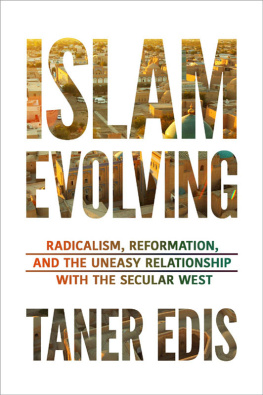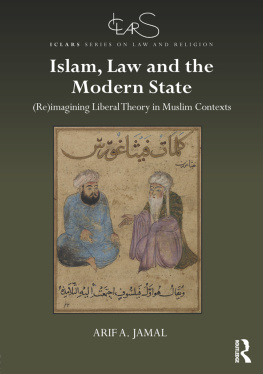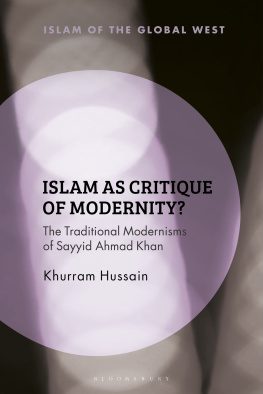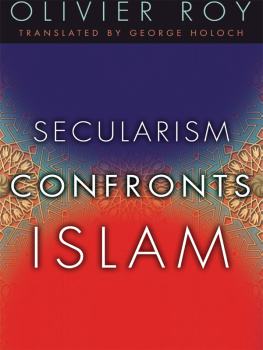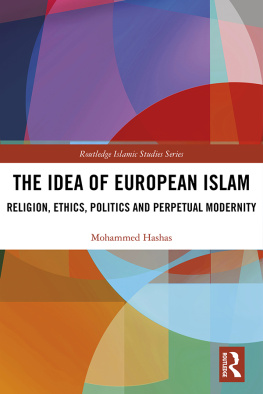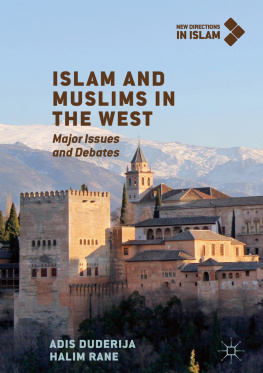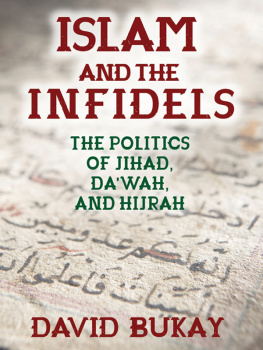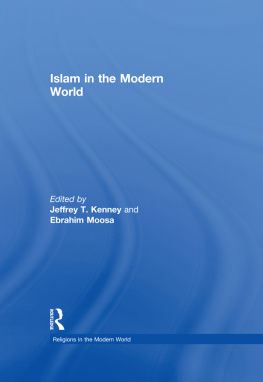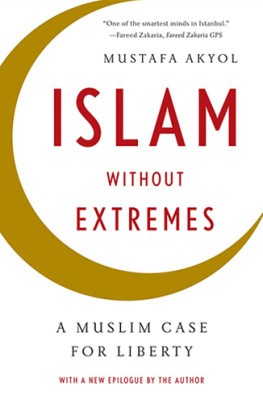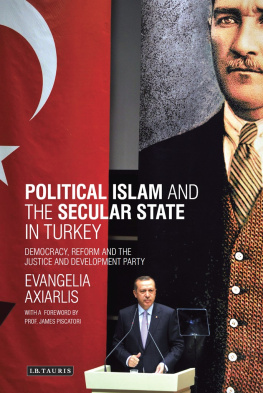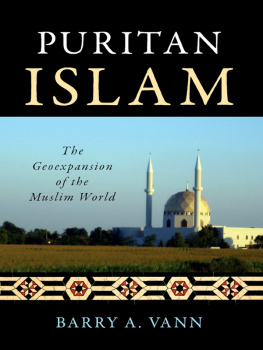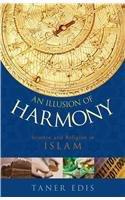
Writing a book like this has been a solitary experience, but it has depended on the work of many others. I should first of all express my gratitude to the many public institutions this book has relied upon, in particular, the libraries of Truman State University and Iowa State University, and MOBIUS, the excellent interlibrary-loan system of Missouri. I also want to thank Truman State University for taking the liberal arts and sciences seriously and allowing me to pursue intellectual interests that might seem out of place in a physics department.
I am especially grateful for the time and efforts of those who read my early drafts and found at least some of the places where I was not making sense. This book owes a lot to Osman Ataker, Stefano Bigliardi, Amy Bix, Maarten Boudry, Joanna Marshall, Tom Marshall, and Richard Woo. Thanks are also due Steven L. Mitchell and Jade Zora Scibilia of Prometheus Books, whose editorial work significantly improved the book.

HEADSCARVES AND BEARDS
If the piles of books that I worked through while writing this book are any indication, Islam should be symbolized not by a crescent but by a headscarf or a beard. Very often people on the covers of the books appear immediately recognizable as Muslims because they are women wearing headscarves or men with full beards. Whether the writer intends to emphasize conflicts between Muslims and non-Muslims or to defend Islamic contributions to social diversity, presenting an exotic picture seems to be a good way to advertise the presence of Islam.
In the midwestern university where I teach, there are only a few who are visibly Muslim, usually African Americans or international students. Still, I see a variety of Islamic displays. Very rarely, I see the full veil and body-hiding black dress, which can be a nuisance when administering exams. More often the headscarf or beard is less attention-grabbing, but it still stands out, especially compared to the far more common Christian students who prefer to display their faith on their T-shirts.
Those of us who are secular in the way we live and liberal in our politics, such as most of my colleagues, don't always know what to make of an Islamic presence. We are well-conditioned to allow for diversity, but the stronger forms of Islam raise questions: What does it mean when a woman in full veil thereby isolates herself from others? If a style of beard signals piety, does this accompany a Muslim form of religious Right politics, similar to that of Christians?
Indeed, the strongest challenges to secular liberalism today often seem to involve Islam. Among my fellow liberals, I take it for granted that we will treat religious faith as a personal matter and that we will reason about public issues in a secular fashion. Not all of us will take a liberal position on, say, wealth inequality or our healthcare system, but none of us will support our views by making theological claims. In contrast, devout Muslims often refuse to limit religion to a private realm. As philosopher Shabbir Akhtar describes it, Islam
is a faith whose adherents are sounding a lone note of courageous defiance in the battle against secularism while other trumpets are blowing retreat. In Islamic culture, all issues, moral and political included, are still effortlessly conceived of as religious. Muslims treat even secular and pragmatic issues as theological matters. Economic, foreign, and political policy is often a surrogate for a theological position.
We secular liberals like to think of ourselves as the leading edge of modernity: we have figured out the best means of acquiring knowledge and institutionalized them in our sciences; we have learned how to reason about social arrangements and established liberal democracy. We have formed liberal varieties of Judaism and Christianity that serve as social clubs and refuges for attenuated supernatural convictions. But Islam seems to hold out. Progressive Muslims who try to reconcile their piety and their liberal views about gender equality and social pluralism are very conscious that they stand against dominant conservative views. And conservative Muslims appear to have little use for our secular liberal political framework. We encounter a political culture where arguments constantly refer to sacred texts, and traditional gender roles and severe penalties for blasphemy are very often just the normal way of things.
Moreover, most secular liberals I encounter are not very familiar with Islam. Our political tradition was forged in criticism of the fact claims and the social ideals presented by Western Christianity. When we attempt to argue for a secular liberal public order, we usually bring up worries about theocracy, the violence that might be unleashed by sectarian conflict, or our inability to achieve consensus when political actors appeal to faith.Such arguments are not convincing in a Muslim context. The challenge presented by conservative Islam, then, is also an opportunity to revisit and revise arguments that form the core of secular liberal political convictions.
Therefore, secular liberals have some reason to explore the political landscape of Islam today. And we have to be careful about the details. Headscarves and beards come in many varieties, and they don't always have the same political significance.
The ways of advertising religiosity become especially complicated where Muslims are a majority. I grew up in Turkey, a dubiously secular country where the public environment has been considerably re-Islamized in the past few decades. When I return to wander the streets of Istanbul, my hometown, I see many different Islamic appearances. The most striking are the men in flowing robes, skullcaps, and full beards, and women in shapeless black with eyes barely visible. I rarely used to see them outside of ultraorthodox neighborhoods or as Arab tourists, but now they can appear everywhere. Even so, most Turks, though generally quite religious, do not try to look like someone out of an imagined version of Arabia fourteen hundred years ago. Two-thirds of women cover their head, but they typically use more colorfrom the distinctly modern trench-coat-and-scarf look of Islamic fashion houses to more traditional Anatolian headscarves. Only a minority of men wear beards, and only a few of them sport the sorts of beard that proclaim devoutness. Their conformity to customary norms of modesty becomes more obvious in the summer, when even in the heat few Turks wear shorts on the city streets.
There is, in fact, a complex code of religious self-presentation. The style of beard, headscarf, or dress can signal everything from how conservative one is about religion to the particular religious order one may belong to. The codes also involve speech and writing. Religious conservatives tend to use more Arabic loan-words, while I, secular semi-foreigner that I am, stick with a modernized, cleaned-up Turkish. I announce my own identity by wearing shorts. If someone addresses me with the common religious form of greeting, I don't make the proper reply, and then we all know where we stand.
If I'm curious about the varieties of Islamic experience being signaledat least to the level of amateur anthropology necessary to negotiate life in any culturally complex large cityit's not difficult to learn more about what the various forms of display mean. The more conservative Muslims, with their more obvious codes of modesty, are also more likely to segregate the sexes in everyday life. I would not offer to shake the hand of a woman who does not show any of her hair; it's possible her community does not believe contact with a male outside her family is permissible. If I want to meet a well-bearded man outside of work, an establishment that serves alcohol is perhaps not the best choice.
Next page
